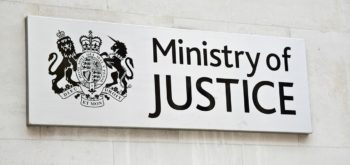It is a little unfortunate that as calls for an ‘NHS Direct for law’ grow louder, the real thing is being broken up and auctioned off to the highest bidder, albeit quietly and largely away from public view. Once upon a time I would have been shocked that a well-used and even loved national organisation could be so unceremoniously scrapped, but I am no longer surprised by the effects of the government’s misplaced belief in the power of the market to make the world a better place.
NHS Direct has dealt with five million calls a year since its launch in 1998 and saves the NHS £200 million a year by ensuring more efficient use of NHS resources. From the end of this month it will be replaced with the new non-emergency phone service NHS 111, delivered across 44 individual contracts, only about a third by NHS Direct. Instead of trained nurses and health professionals, new providers will be allowed to employ call staff with just 60 hours of training.
I’ll leave up to your own imagination the impact this will have on what had become a valued national triage service, although you won’t have to wait long to see it unfold. This is a crying shame, because the concept is a good one and it was, by and large, working well.
Despite the demise of NHS Direct, it is easy to see why those concerned about the complicated and fragmented legal market would look to the model as one part of the solution. What is less obvious is why it has taken them so long to come round to the idea.
However, the Legal Services Consumer Panel (LSCP) has now joined the chorus, highlighting the ‘compelling moral and economic case’ for developing an NHS-Direct-type initiative for legal services.
The imperative is similar: enabling the public to understand the nature of their problem and where they should go to get help.
If people were sometimes going to the ‘wrong’ place with their health problems before NHS Direct, imagine how mixed up they can get over legal issues. The legal market is a nightmare to navigate if you’re not an expert and, let’s be honest, most consumers probably don’t even realise they are in charge of the tiller, never mind have the information about how to operate it. Instead, most of them just hire the first professional-looking person they see and hope they are going in the same direction.
This does not mean it is wrong to reform the legal market. Competition can and does result in more innovative services and more choice, but for this to happen there must also be clear and impartial information for consumers. In complicated markets where there is a significant information imbalance between purchaser and provider, it also requires fair and responsible choice ‘editors’ (a bit like financial advisers), not least to help consumers work out if they need a lawyer at all.
Because how would they know? Our lack of attention to legal education often leads to the perception that if you need to use the law you need to use a lawyer (or a proxy, like a claims management company). This has surely fuelled the growth in the number of solicitors (tripling in 30 years to over 150,000) and fears that we are becoming a more litigious society.
If more of us knew we could do some things without a lawyer, perhaps we would.
The LSCP points out that better information on its own won’t promote competition, consumers also need to trust lawyers and be confident regulators will protect them, neither of which is the case now. Another major barrier the panel highlighted is the way legal services are promoted and delivered, through structures set up for the benefit of providers that bear little or no resemblance to people’s lives.
Wouldn’t it be nice if the professionals could just ask us what we want, rather than attempting to fit our problem into their way of doing business? How will I know if I need dispute resolution, property or planning if I have an issue with my neighbour, or whether I need family, dispute resolution or wills if I have a problem with an estate?
An NHS Direct for the law would be great but if it’s to avoid the fate of the real NHS Direct it has to be provided by an organisation dedicated to the public interest and not to its profit margin and it has to be staffed by experts who know what they are talking about and not people who have just read a law text book and have a script to follow. More importantly, it will only work if all regulators and providers start taking consumer concerns seriously.





